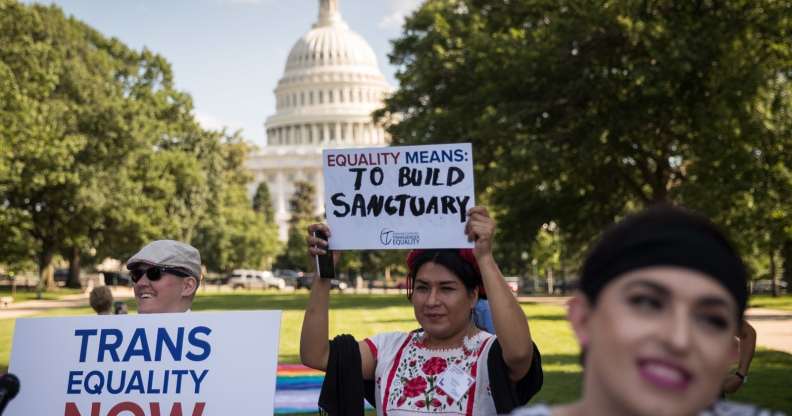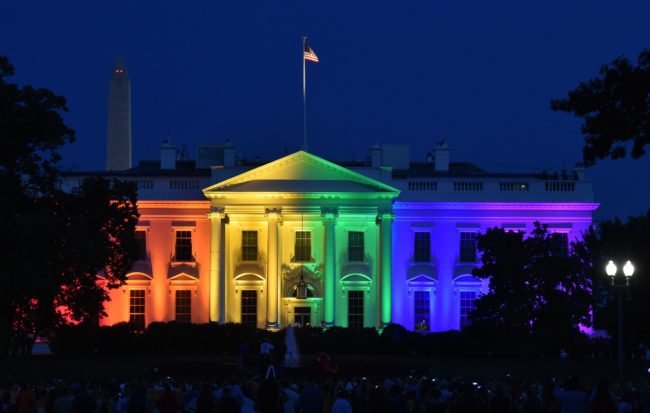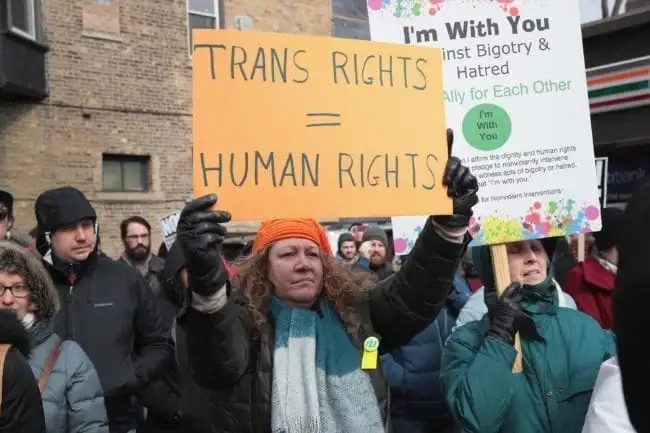Thousands of transgender people may be prevented from voting in US election

Members of the transgender community and their supporters rally for transgender equality on Capitol Hill in 2017 (Drew Angerer/Getty Images)
An estimated 78,000 transgender Americans may be barred from voting in the upcoming US elections due to strict voter ID laws, according to a new report.
Research by the Williams Institute at the UCLA School of Law found people without identification or documentation that accurately reflects their gender identity are at risk of losing their ability to vote in November.
Eight states require voters to provide a government-issued photo ID at polling places, where officials decide whether the ID photo matches their registration information.
The rules could prevent trans people from voting in Alabama, Georgia, Indiana, Kansas, Mississippi, Tennessee, Virginia and Wisconsin.
According to the report, there is “no way to predict precisely how election officials and poll workers will treat transgender voters” at the polls if they present identification that does not accurately reflect their gender.
Across these eight states, 57 percent of the transgender voting-eligible population may have no identification or records that accurately reflect their gender, the report data suggests.

Strict voter ID rules could impact thousands of trans voters (Mladen Antonov/AFP/Getty)
“Voter ID laws create a unique barrier for transgender people who would otherwise be eligible to vote. Many transgender people who have transitioned do not have identification documents that accurately reflect their correct gender,” the report authors state.
“In the November 2018 general election, strict photo ID laws may create substantial barriers to voting and possible disenfranchisement for over 78,000 transgender people in eight states.”
The institute, who has monitored the impact of these laws in previous elections, said this estimate is higher than in the past due to increase availability of “better data on the status of names and gender markers among transgender people.”
The report also highlights that trans people of colour, young adults, students, people with low incomes and people with disabilities are likely to be among those facing barriers.

Trans people reported negative experiences when voting in the US (Scott Olson/Getty Images)
“Some voters may not have the means or the ability to obtain the required voter identification for a variety of reasons, such as poverty, disability, or religious objection,” researchers add.
The report, which uses data from the 2015 US Transgender Survey by the National Centre for Transgender Equality, found 32 percent of survey respondents reporting having negative experiences after presenting ID that did not match their gender identity.
Trans voters said they were verbally harassed, denied services or asked to leave the polling area, with some reporting being attacked or assaulted.
The William Institute report also used data from the 2017 Current Population Survey (CPS), conducted by the US Census Bureau and the Bureau of Labour Statistics.

